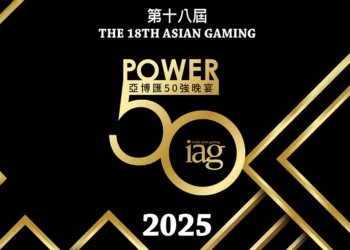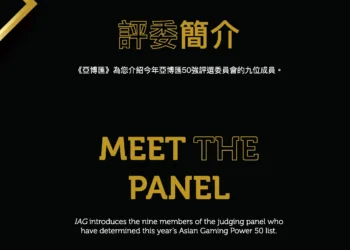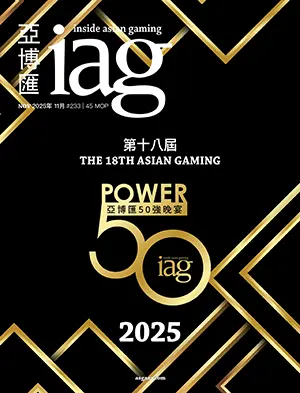In the first of a two-part series explaining the A to Z of junkets, Inside Asian Gaming examines the history of Macau’s junket industry, how they came to be partners with the SAR’s six gaming concessionaires and the introduction of specific regulations governing their operations over the past 20 years.
In 2013, Macau’s VIP gaming sector recorded gross gaming revenue of MOP$238.54 billion (US$29.86 billion) – the ninth straight year of record revenues since such data was first recorded by the Gaming Inspection and Coordination Bureau back in 2005. The figure represented 65.9% of Macau’s total GGR for the year of MOP$361.87 billion (US$45.3 billion), only slightly down on the 72.9% of gaming revenue VIP contributed two years earlier. Both are records unlikely to be broken anytime soon.
Since 2014, the VIP sector has seen its influence gradually subside, dropping below 60% for the first time in 2015 and from 54.7% in 2018 to an all-time low of 46.1% last year. Heavily impacted by China’s 2014 anti-graft campaign, which effectively slashed the pool of high-rollers coming to Macau, junkets and operators have not only seen their VIP volumes subside, but have also endured a lengthy period of consolidation – from 235 licensed junkets in 2013 to 141 three years later and just 95 as of 2020.
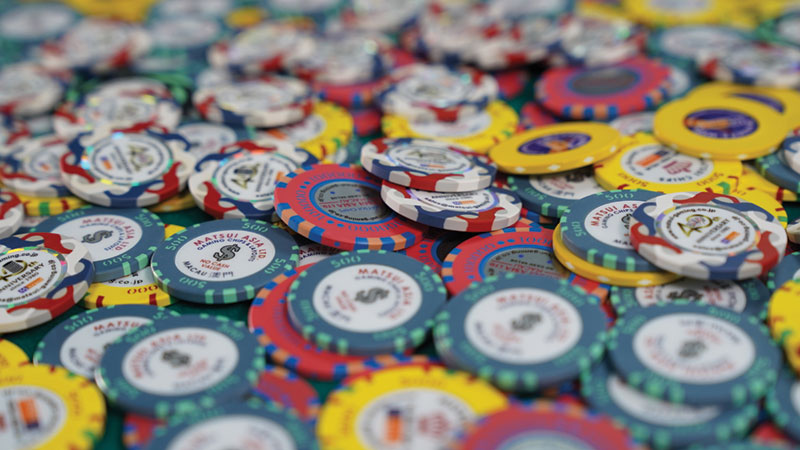 Likewise, casino operators have gradually shifted their focus away from the once endless riches of the VIP biz towards the higher-margin mass and premium mass segments, both boosted by growing visitation to the Macau SAR (reaching a record 39.4 million in 2019).
Likewise, casino operators have gradually shifted their focus away from the once endless riches of the VIP biz towards the higher-margin mass and premium mass segments, both boosted by growing visitation to the Macau SAR (reaching a record 39.4 million in 2019).
Yet, as all eyes look forward to 2021 and, hopefully, an end to the COVID-19 pandemic that has left the global gaming industry rattled, any suggestions that the junket industry is on its last legs couldn’t be further from the mark.
“The industry is hurting right now, and junkets are no different, but rest assured it is VIP that will drag us back,” says Niall Murray, Chairman of IR consultancy firm Murray International Group.
Often demonized and certainly misunderstood, Macau’s junket industry has a long and sordid history that has sparked caution from regulators in Nevada and Singapore, and most recently Australia. But while some jurisdictions shy away, Macau has embraced the troubled beginnings of its junkets – utilizing past experience to strengthen regulations while simultaneously establishing itself as a global economic powerhouse.
And the numbers don’t lie. Even accounting for the challenges it has faced in recent years, Macau’s VIP sector contributed GGR of MOP$135.23 billion (US$16.93 billion) in 2019, more than twice the gaming revenue of either Las Vegas or Singapore, and four times that of the Philippines.
Rather than the decline of junkets, the 2004 birth of Macau’s integrated resort era has sparked an ongoing evolution.
HUMBLE BEGINNINGS
In the May 2020 edition of Inside Asian Gaming, former gaming regulator and consultant to the Macau SAR Government David Green took aim at critics of Macau’s junket license regime, stating, “Their normative pronouncements about what constitutes good-practice regulation pay little to no regard whatsoever to history, context or relevant public interest.”
That is, to fully grasp the how and why of Macau’s modern-day junket system, you first need some reasonable understanding of the historical events that led it to this point.
 The concept of marketing Macau’s gambling industry to players in Hong Kong or China dates back at least two centuries and likely much further than that. As outlined by Hong Wai Ho in a detailed 2018 paper examining the evolution and regulation of junkets, the first seeds of what loosely resembled today’s VIP modus operandi sprouted in the 1930s when Macau authorities granted Tai Heng Company the monopoly license to operate the popular local game fantan. To attract players to their casinos, Tai Heng employed the services of gambling recruiters known as Jin-Ke (literally meaning “introducing customer”), who would organize visits to Macau for groups from surrounding regions.
The concept of marketing Macau’s gambling industry to players in Hong Kong or China dates back at least two centuries and likely much further than that. As outlined by Hong Wai Ho in a detailed 2018 paper examining the evolution and regulation of junkets, the first seeds of what loosely resembled today’s VIP modus operandi sprouted in the 1930s when Macau authorities granted Tai Heng Company the monopoly license to operate the popular local game fantan. To attract players to their casinos, Tai Heng employed the services of gambling recruiters known as Jin-Ke (literally meaning “introducing customer”), who would organize visits to Macau for groups from surrounding regions.
When, in 1962, Stanley Ho’s Sociedade de Turismo e Diversões de Macau, SA (STDM) won the city’s exclusive casino concession, Jin-Ke shifted its focus to becoming a key source of business for the new Ho empire.
It was 1970, following the opening of STDM’s iconic Casino Lisboa, when the junket business took a giant step towards becoming what it is today. Lisboa, at the time considered the height of luxury, proved to be a cash cow for STDM, attracting a growing number of visitors from Hong Kong who would traverse the 66km stretch of water between the two territories using the STDM-owned ferry service. But it also attracted the attention of local triads, who cornered the tourist market by buying up ferry tickets in bulk and then selling them to customers at an inflated price. This quickly created a situation where no one could come or go from Macau without engaging the services of these ticket scalpers.
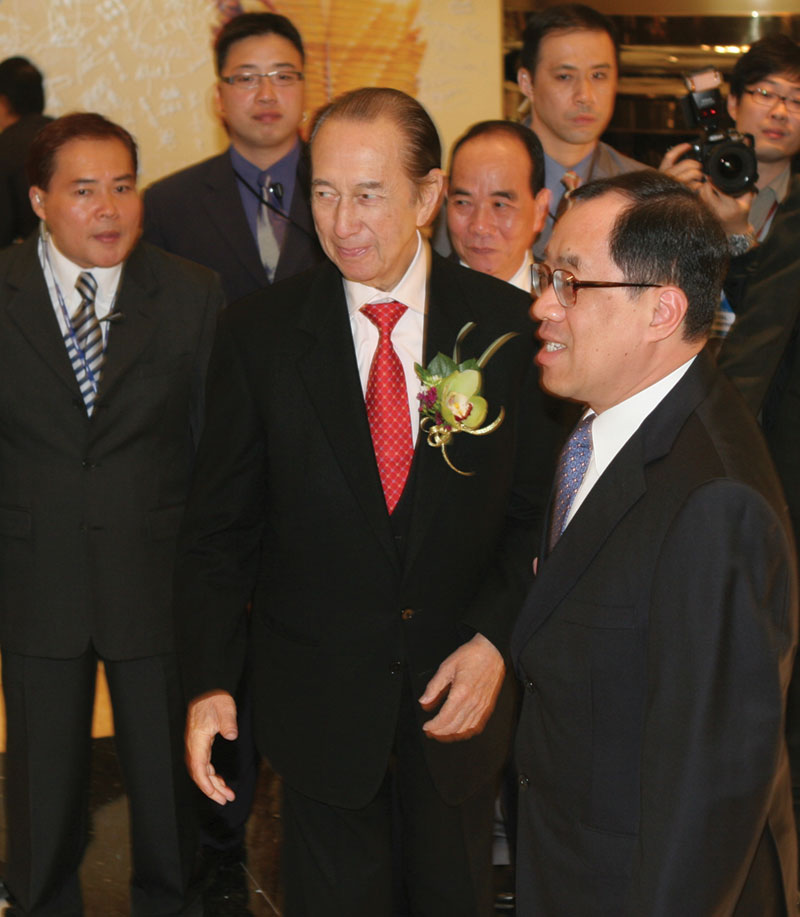
To solve this growing problem, Dr Ho proposed a new arrangement by which he would allow these scalpers to bring players into his casinos provided they stopped buying up ferry tickets. The deal allowed for these individuals – who became known as Daa Maa Zai or “chip rollers” – to sell non-cash chips, also known as dead chips, to players in return for 0.7% commission on all chips rolled (played) at STDM’s tables. A similar rolling chip model remains the primary method of play for VIP customers in Macau casinos to this day.
It was also Casino Lisboa that introduced the first VIP room designated specifically for the use of junkets. Faced with a revision to Macau’s gaming tax laws following the 1974 inauguration of Governor Garcia Leandro, who imposed a new tax on gaming revenues rather than the annual concession fee system previously in place, Dr Ho pushed to increase revenues by recruiting more Daa Maa Zai. But having so many of these chip rollers working independently created problems of its own. The solution was to offer use of an exclusive VIP saloon to some of the more powerful and trusted Daa Maa Zai, who would in turn be responsible for a larger group operating under their watch. The success of Diamond VIP Room, opened at Casino Lisboa in 1986, laid the platform for the hundreds of VIP Clubs operated by junkets at Macau casinos and across Asia-Pacific today.
CREDIT CRUNCH
It was during these early days of junket rooms opening within STDM’s casinos that loan sharking became far more prolific. Prior to 2004, when Macau authorities introduced the first gaming credit law, it was illegal for STDM as the sole casino concessionaire to provide credit for the purposes of gambling, and so it fell to the Daa Maa Zai to arrange such deals with players directly.
But problems quickly emerged. First of all, as more money was handed out to players on credit, debt collection became an increasing issue due to its lack of enforceability in mainland China.
As Green explains, “The junkets themselves were reluctant to extend large volumes of credit because they had problems with collection, and upstream the casino operators weren’t particularly happy to fund them either, so the initial market that these guys were tapping into I would describe as an opportunistic market where people would come over the border, be met by some bloke who would say, ‘I’ve got a deal for you’, and he would sell them chips for cash.
 “If he knew them he might say, ‘Put it on tick, I’ll take something out of your cash chips and we’ll convert your initial winnings back into dead chips so I get my commission from the chief junket man,’ and so it went on.
“If he knew them he might say, ‘Put it on tick, I’ll take something out of your cash chips and we’ll convert your initial winnings back into dead chips so I get my commission from the chief junket man,’ and so it went on.
“It was almost like a pyramid selling scheme where the whole thing cascaded down to agents going in all directions.”
Having so many agents competing for business became an even bigger problem for Macau itself, particularly as such dealings inevitably increased competition between the two main triads – 14K, led by Wan Kuok “Broken Tooth” Koi, and Shui Fong, led by Lai Tong Sang. Tensions quickly escalated and by the late 1990s had developed into a full-scale turf war.
“By this stage there were 10,000 of these characters hanging around the city, and that’s when the trouble started, with people shooting each other over customers,” explains Murray.
“In the end it was Stanley Ho himself who sorted out the warring factions. He said to them, ‘Listen, stop shooting, put down your guns; we’ve got an operation for you, so start doing business in the hotel and stop fighting. It’s up to you to decide if you want to ruin this opportunity. You bring in the players, we’ll sort out the license, we’ll provide the dealers, we’ll provide a fair game. Knock yourself out by bringing in as many VIP players as you like.”
Nevertheless, by the time the newly formed Macau SAR announced plans in 2001 to end STDM’s casino monopoly and offer up to three gaming concessions in an international tender, it had become abundantly clear that the junket business needed some form of proper regulatory oversight.
LAW AND ORDER
Junkets, officially referred to as gaming promoters, were first incorporated into Macau gaming law 16/2001, which outlined specific requirements for the operation of these promotors including tax liabilities and certain obligations required of official company representatives.
“Games promoters,” the law states, refers to “the promotion agents of games of fortune in casinos, that carry out their activity by offering facilities to players, namely in what refers to transports, lodging, food and entertainment, receiving from a concessionaire a commission or other remuneration as payment.”
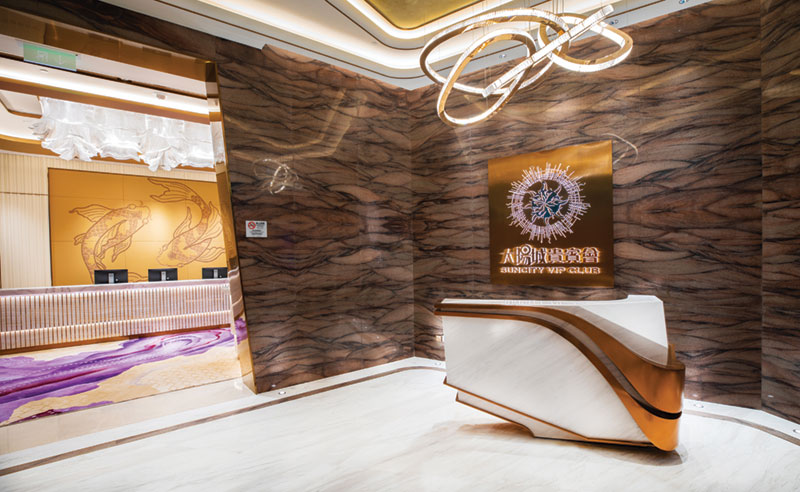 Anticipating the award of gaming concessions to new operators the following year and the inevitable presence of junket rooms within their premises, Law 16/2001 stipulated that the activity of gaming promoters would be subject to licensing and government inspection and that they must register with each concessionaire where they intended to operate, that a list of all “collaborators” or agents up to a maximum number must be submitted for DICJ approval and, most importantly, that all directors, main employees and anyone holding 5% or more of the company’s capital stock must pass a probity check and be deemed a suitable person.
Anticipating the award of gaming concessions to new operators the following year and the inevitable presence of junket rooms within their premises, Law 16/2001 stipulated that the activity of gaming promoters would be subject to licensing and government inspection and that they must register with each concessionaire where they intended to operate, that a list of all “collaborators” or agents up to a maximum number must be submitted for DICJ approval and, most importantly, that all directors, main employees and anyone holding 5% or more of the company’s capital stock must pass a probity check and be deemed a suitable person.
For their part, concessionaires were given primary responsibility for keeping their junket partners in line by supervising their activity to ensure compliance with the legal rules and regulations.
It was also up to concessionaires to withhold tax due on commissions or any other remunerations paid to the gaming promoter calculated on GGR originated by the player. The tax rate on these commissions or other remunerations was set at 5% (later altered to 3% but since 2007 back to 5%).
The Gaming Promoters’ Regulation (6/2002), published the following year, provided a more detailed description of laws governing gaming promoters, including licensing requirements and circumstances under which junkets and concessionaires could be fined or, at worst, have their licenses revoked. Among its key provisions was that junkets were to be licensed annually, that they were to cover the full cost of probity checks by way of a MOP$100,000 advance deposit, and that the managing director must own at least 10% of the company’s registered share capital.
It also required that all shares in a junket company be held by a “natural person” – a measure that effectively excluded licensed junkets from being listed on the Hong Kong Stock Exchange (non-junket operations are another matter).
The real game changer for junkets, however, was implementation of the Gaming Credit Law in 2004, which for the first time provided a legal provision for concessionaires and junkets to provide credit to players.
Crucially, it also made it clear that gambling debts accrued via such legal issuance of credit were fully enforceable in Macau – a provision which ultimately cemented the long-term relationship between operators and junkets and saw the latter move off the streets entirely and into the glitzy VIP rooms of today’s integrated resorts.
This last provision didn’t necessarily solve the problem of recouping debts from players based outside of Macau – and certainly not in mainland China – but there has been some progress since, with Wynn Macau winning a landmark 2013 court case in which Hong Kong’s High Court enforced a HK$14 million (US$1.8 million) gambling debt against one of its own citizens.
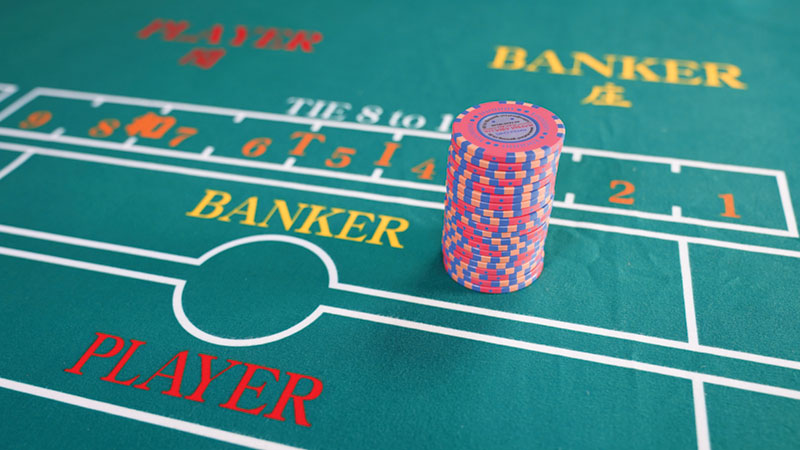 As Green notes, implementation of the credit law was transformative for Macau’s gaming industry.
As Green notes, implementation of the credit law was transformative for Macau’s gaming industry.
“The credit law really allowed the casinos themselves to provide front money for the junkets on credit,” he explains.
“Mind you, they underpinned their risk by requiring the junkets to deposit fairly substantial amounts with them, but even so there was a degree of risk there, and then the junkets themselves were able to leverage that availability of credit and the front money they had with those casinos to go and recruit higher value players.
“What this meant too was that your chip runners and others moved indoors. They moved out of the shadows of the street and moved into the casinos and literally became the people that would run chips between the VIP room cages and the tables, just taking the winning chips and taking back dead chips until the guy had met his obligation to roll his front money.”
Green notes that, by necessity, Macau’s oversight of gaming promoters is somewhat “looser” than might be expected in the stricter gaming jurisdictions of the United States or Australia, however the fact that junkets have moved off the streets and directly into IRs has forced the operators themselves to pay closer attention to what’s going on.
“As long as [junkets] are required to operate under contract with concessionaires, the concessionaires provide an important control on their operations,” he explains.
“The standard junket agreement now requires that they provide all of the information required for AML filings, that they comply with directions from the concessionaire and particularly comply with their internal control requirements, so you’ve really got an additional layer that is not formal regulation, but clearly it is in the interests of the concessionaires to ensure that the junkets are compliant. There have been a number of instances where junkets have been terminated (by concessionaires) for non-compliance and moved on.”
That Macau’s concessionaires haven’t ploughed more resources into expanding their own VIP-direct programs at the expense of junket play ultimately comes down to this issue of bad debt and the fact that irrecoverable money cannot be offset against GGR for the purposes of calculating gaming tax.
Nevertheless, they were handed a reminder of the need to maintain close oversight of their junket partners in 2018 when the Court of Second Instance (TSI) ruled that Wynn Macau Ltd was jointly liable for a HK$6 million (US$774,000) investor deposit stolen by an employee of junket operator Dore Entertainment Co Ltd in 2015. The sum formed part of a much larger theft by the employee, estimated to be somewhere in the vicinity of HK$700 million (US$90 million), which led four investors to file lawsuits against Wynn and Dore.
While only one of those proved successful, the TSI’s ruling made it clear that a concessionaire is to be considered jointly liable with any gaming promoter conducting activities within its casinos for any damages the junket causes to third parties.
According to a summary provided by Macau law firm MdME, “This Court decision clarifies that … the legislator intention is to give more responsibility to concessionaires in controlling activities carried in their casinos by the gaming promoters, their directors and collaborators.
 “Therefore, it concluded it is reasonable and logical to require them to supervise these activities, as well as to assume a joint responsibility with the gaming promoters, their directors and collaborators in event of liability arising from the acts performed by them. If the gaming concessionaire does not fulfil its supervision duty, allowing or tolerating the gaming promotor to develop this kind of activity in its casinos, joint responsibility for the damages caused by that activity shall not be excluded.”
“Therefore, it concluded it is reasonable and logical to require them to supervise these activities, as well as to assume a joint responsibility with the gaming promoters, their directors and collaborators in event of liability arising from the acts performed by them. If the gaming concessionaire does not fulfil its supervision duty, allowing or tolerating the gaming promotor to develop this kind of activity in its casinos, joint responsibility for the damages caused by that activity shall not be excluded.”
It is with such joint responsibility in mind that Macau’s Anti-Money Laundering (AML) laws, first implemented in 2006 and tightened as recently as 2019, are applied to both operators and gaming promoters. Requirements under the AML law include customer due diligence obligations, enhanced monitoring of play by politically exposed persons, identification and reporting of suspicious transactions, an obligation to refuse to carry out transactions when mandatory information is not provided, and various record-keeping obligations.
One further important piece of junket-related legislation was passed in September 2009, which specifically protected the interests of operators by capping commissions paid to gaming promoters at a maximum 1.25% of rolling chip sales. The Gaming Promoters Commissions Regulation 27/2009 was in response to lobbying from operators after Melco PBL Entertainment (Macau) Limited, the joint venture between Melco Resorts and Australia’s Crown Resorts, announced the signing of a gaming promotion agreement with local junket Ama International Limited that saw Ama agree to supply VIP business exclusively to Crown Macau in return for a 1.35% commission. There had been talk of operators paying commissions as high as 1.50% due to fierce competition in the sector, forcing operators to take a hefty hit to their margins if they wanted to attract any VIP business to their properties at all.
Today, a 1.25% commission paid to junket operators on rolling has become standard practice.
In Part 2 of our deep dive into junkets, which will feature in the October edition of Inside Asian Gaming, we’ll explain how standard gaming promotion agreements between junkets and operators work. We’ll also look at Macau’s “Big 3” junkets including detailed lists of their current VIP Clubs, and explain how many of these larger junkets have transformed themselves in recent years at a time when the VIP industry faces growing consolidation.









